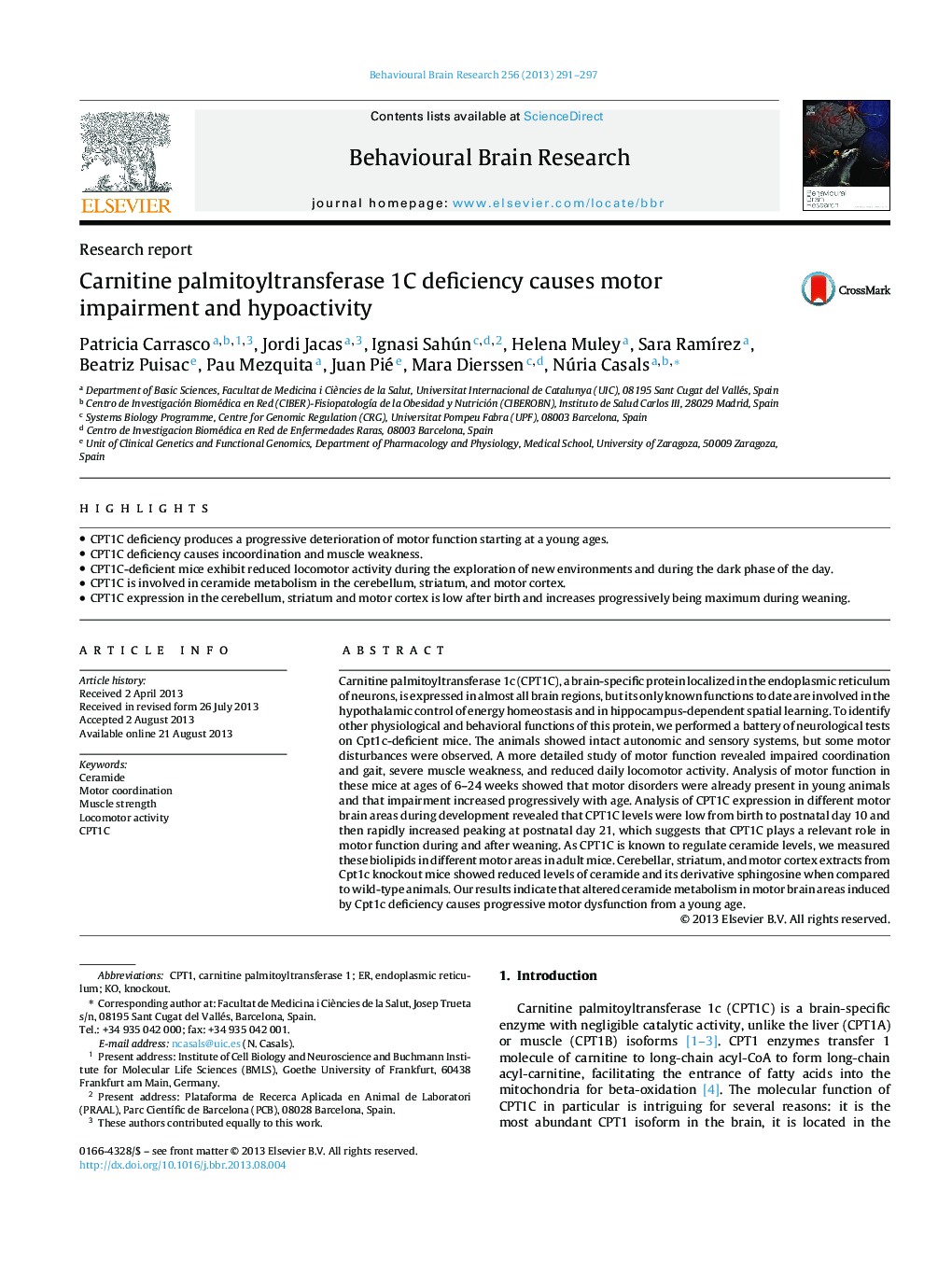| Article ID | Journal | Published Year | Pages | File Type |
|---|---|---|---|---|
| 6258805 | Behavioural Brain Research | 2013 | 7 Pages |
•CPT1C deficiency produces a progressive deterioration of motor function starting at a young ages.•CPT1C deficiency causes incoordination and muscle weakness.•CPT1C-deficient mice exhibit reduced locomotor activity during the exploration of new environments and during the dark phase of the day.•CPT1C is involved in ceramide metabolism in the cerebellum, striatum, and motor cortex.•CPT1C expression in the cerebellum, striatum and motor cortex is low after birth and increases progressively being maximum during weaning.
Carnitine palmitoyltransferase 1c (CPT1C), a brain-specific protein localized in the endoplasmic reticulum of neurons, is expressed in almost all brain regions, but its only known functions to date are involved in the hypothalamic control of energy homeostasis and in hippocampus-dependent spatial learning. To identify other physiological and behavioral functions of this protein, we performed a battery of neurological tests on Cpt1c-deficient mice. The animals showed intact autonomic and sensory systems, but some motor disturbances were observed. A more detailed study of motor function revealed impaired coordination and gait, severe muscle weakness, and reduced daily locomotor activity. Analysis of motor function in these mice at ages of 6–24 weeks showed that motor disorders were already present in young animals and that impairment increased progressively with age. Analysis of CPT1C expression in different motor brain areas during development revealed that CPT1C levels were low from birth to postnatal day 10 and then rapidly increased peaking at postnatal day 21, which suggests that CPT1C plays a relevant role in motor function during and after weaning. As CPT1C is known to regulate ceramide levels, we measured these biolipids in different motor areas in adult mice. Cerebellar, striatum, and motor cortex extracts from Cpt1c knockout mice showed reduced levels of ceramide and its derivative sphingosine when compared to wild-type animals. Our results indicate that altered ceramide metabolism in motor brain areas induced by Cpt1c deficiency causes progressive motor dysfunction from a young age.
